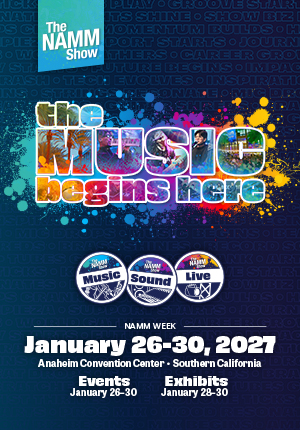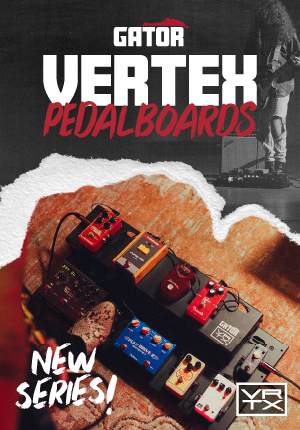The 2021 budgeting and financial planning process will be a daunting task for most if not all music retailers. The financial considerations for combo MI dealers will be different than those for school music dealers, which will be different still for keyboard dealers. Each type of music retailer is weighing the relevance and importance of myriad factors. But with the challenges of predicting the future also comes an opportunity to turn hard-earned lessons from the COVID-19 pandemic into an enduring business model that links strategy with success.
A perfect budget for 2021 may not be achievable, but a better budgeting process certainly is.
The year of 2020 not only brought a global pandemic, it also drove home the reality of how quickly a booming economy can be brought to its knees and threaten the financial survival and employment of anyone working in the music industry. There was little time to adopt new revenue generating strategies and control ongoing expenses to assure the music products industry made it safely to 2021 and beyond. Now, after months of improvising, music store owners and their financial teams are starting to realize they now must swiftly implement a real business model and corresponding budget for 2021 that matches their financial resources with a strategy that will for-sure work … a daunting task.
A perfect budget for 2021 may not be achievable, but a better budgeting process certainly is. It’s easy to get stuck in the endless pondering and guessing of projected revenue and operating expenses, so stop doing that. Instead, follow these three common sense budgeting steps to help assure both your survival and success over the next few months and year to come:
Step 1: Look at the mistakes made in 2020. When kicking off the 2021 budgeting process, revisit the realities, assumptions and decisions you made, or didn’t make, during the COVID-19 crisis. This review is critical, as different store staff will have differing experiences and viewpoints on your store’s response to and recovery from the pandemic. Everyone needs to be on the same page as to what happened, how you reacted, what worked, what didn’t, what makes sense for the new year and what are now-old business practices that no longer have any applicability today.
Step 2: Reimagine your business model. There’s no question about it; this pandemic has revealed not only how technology can play an integral role in the daily operation of all of our businesses, it’s also revealed how the same technology is changing or enhancing the way people buy. It’s way too easy, and, in my opinion, wrong to say that everything now needs to be sold on the internet. If the internet is how your customers want to buy from you, then you better be making the online sales channel your primary means of selling product. But if your customers are still wanting to visit your store to buy or rent pianos and keyboards, then you better create an enjoyable in-store experience they’ll never forget coupled with a social media campaign to generate interest.
Step 3: Teamwork is no longer a buzzword. Now more than ever, teamwork is critical to your store’s survival. Your entire staff must have a common understanding of what happened last year, what is still happening and what will likely happen in the near future. Sales staff, for instance, must have a shared vision of when an economic return will realistically happen. Purchasing staff must agree on when critical product inventory will realistically arrive. And your bookkeeping staff must consider the impact all of this has on cash flow, while keeping in mind current cash reserves, vendor credit terms and your ability to borrow if need be. They must work as a team to make sure their contribution to any budget reflects a sense of realism so that management decisions can be proactively made to ultimately achieve profit or minimize losses by the end of the year. MI
Alan Friedman, CPA, provides accounting and financial services to music industry clients. He is a frequent speaker at NAMM U seminars and can be reached at 860-677-9191 or alan@fkco.com. Visit his website, fkco.com.












